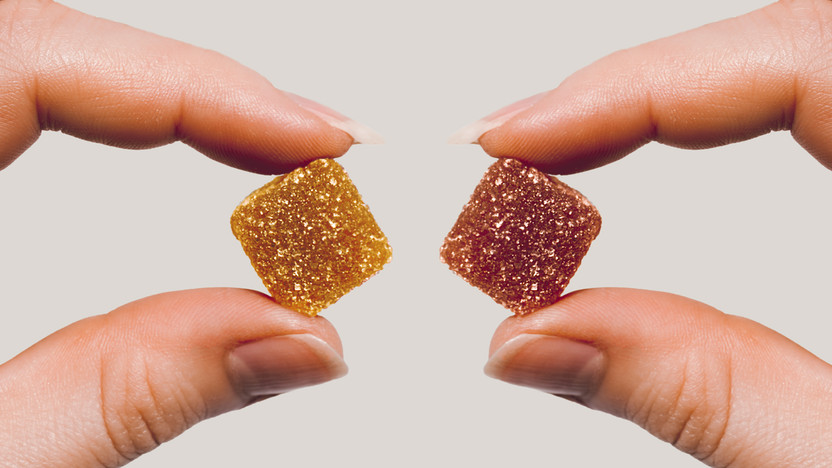Delta-8 THC vs. Delta-9 THC: How Do They Compare?
7th Feb 2023
Delta-9 Tetrahydrocannabinol (Delta-9 THC) is the primary psychoactive compound found in cannabis plants. Delta-8 THC, on the other hand, is another form of THC that is naturally produced by the cannabis plant, but in very small concentrations. Therefore, Delta-8 THC is typically produced by converting CBD extract into Delta-8 THC. Delta-9 THC and Delta-8 THC have similar effects on the human body. However, there are some notable differences between the two compounds, including their legal status, potency, and availability. Hence, while Delta-9 THC is well-known and widely used for its psychoactive effects, Delta-8 THC is gaining popularity as a legal alternative to Delta-9 THC in many states. Regardless, confusion surrounding these two compounds abound, making it difficult for people to understand the differences between them. This article aims to clear up any confusion and provide a comprehensive guide to the Delta-8 THC vs Delta-9 THC debate.
Production Process
Delta-9 THC is the most commonly found cannabinoid in cannabis plants, while Delta-8 THC is found in lower concentrations. Delta-9 THC is more cost-effectively extracted from cannabis biomass due to its high concentration, while Delta-8 THC requires a more time-consuming and labor-intensive process of converting CBD isolate from hemp biomass into Delta-8 THC. Both Delta-8 THC and Delta-9 THC can be used to create a variety of infused products such as edibles, extracts, vape cartridges, tinctures, topicals, capsules, and transdermal patches.
Are They Legal?
Delta-8 THC has gained popularity among cannabis consumers who lack legal access to Delta-9 THC. On the federal level, Delta-9 THC is classified as a Schedule I controlled substance, meaning it’s considered to have a high risk for abuse and no medicinal benefits. Delta-8 THC products are considered legal if it contains less than 0.3% Delta-9 THC, but the DEA considers it illegal if it is produced artificially from non-cannabis sources. Different states have different laws regarding Delta-8 products, and some states have completely banned them. As a result, processors need to be mindful of federal regulations in order to stay compliant.
Effects
A lot of people will notice that Delta-8 THC produces a milder high compared to Delta-9 THC, making it increasingly popular amongst consumers who do not like the intensity of Delta-9 THC. Delta-8 also has a strong binding affinity with CB1 and CB2 receptors, while Delta-9 THC has a higher binding affinity with CB1 receptors causing more intoxication in high doses.
Delta-9 THC has a higher potential for overconsumption and adverse effects due to its more potent high, but overconsumption can also occur with Delta-8 THC if the user exceeds their THC tolerance. Similar side effects can occur with both, including dry mouth, red eyes, fast heart rate, drowsiness, short-term memory loss, and coordination issues.
Dosage
The recommended dose of Delta-8 and Delta-9 THC products varies from person to person. Due to its milder potency, Delta-8 products are generally sold at a higher dose than Delta-9 products, sometimes 2 to 3 times stronger. It is crucial to consider the potency of the product before taking a large amount. Novice users should start with a low dose and slowly increase to their desired outcome.



